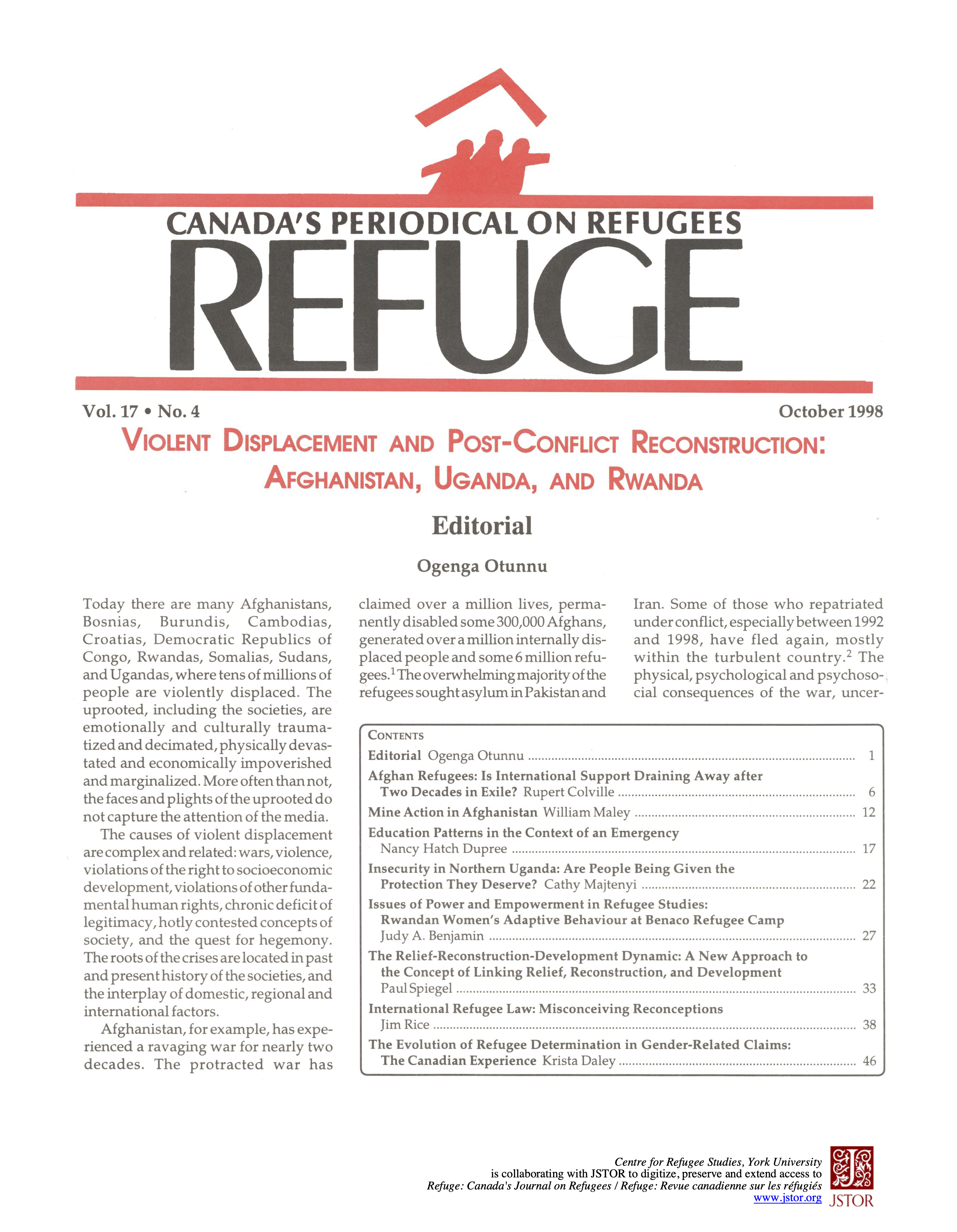Issues of Power and Empowerment in Refugee Studies: Rwandan Women's Adaptive Behaviour at Benaco Refugee Camp
DOI:
https://doi.org/10.25071/1920-7336.21979Keywords:
Benaco, Tanzania, Rwanda, refugee camps, refugee women, gender, violence against women, coping strategies, adaptability, social change, healthAbstract
This paper addresses human rights violations in the context of gender power relationships and calls attention to the need to examine the standards for human rights assessments in the context of refugee situations. This research is based on fieldwork carried out with Rwandan Hutu refugees during an 18-month assignment as Project Director for CARE International in Ngara, Tanzania. Participant observations, interviews, surveys, and focus group discussions yielded a wealth of data concerning the coping strategies of men and women. Women's coping strategies made them vulnerable: women without partners were the least protected and took the greatest risks in their efforts to survive and feed their children. Their adaptive behaviour increased their risks of rape, sexual abuse, and exposure to HIV and other sexually transmitted diseases. These serious problems were overshadowed by the chaotic business of running a refugee camp. In the rush to accommodate the influx of hundreds of thousands of refugees, the non-governmental organizations and UN agencies established a relief infrastructure that -- perversely -- gave the perpetrators of crimes, positions of power within the camp, which enabled the gender violations to persist.Metrics
Downloads
Published
How to Cite
Issue
Section
License
Copyright (c) 1998 Judy A. Benjamin

This work is licensed under a Creative Commons Attribution-NonCommercial 4.0 International License.
Refuge authors retain the copyright over their work, and license it to the general public under the Creative Commons Attribution-Non Commercial License International (CC BY-NC 4.0). This license allows for non-commercial use, reproduction and adaption of the material in any medium or format, with proper attribution. For general information on Creative Commons licences, visit the Creative Commons site. For the CC BY-NC 4.0 license, review the human readable summary.







